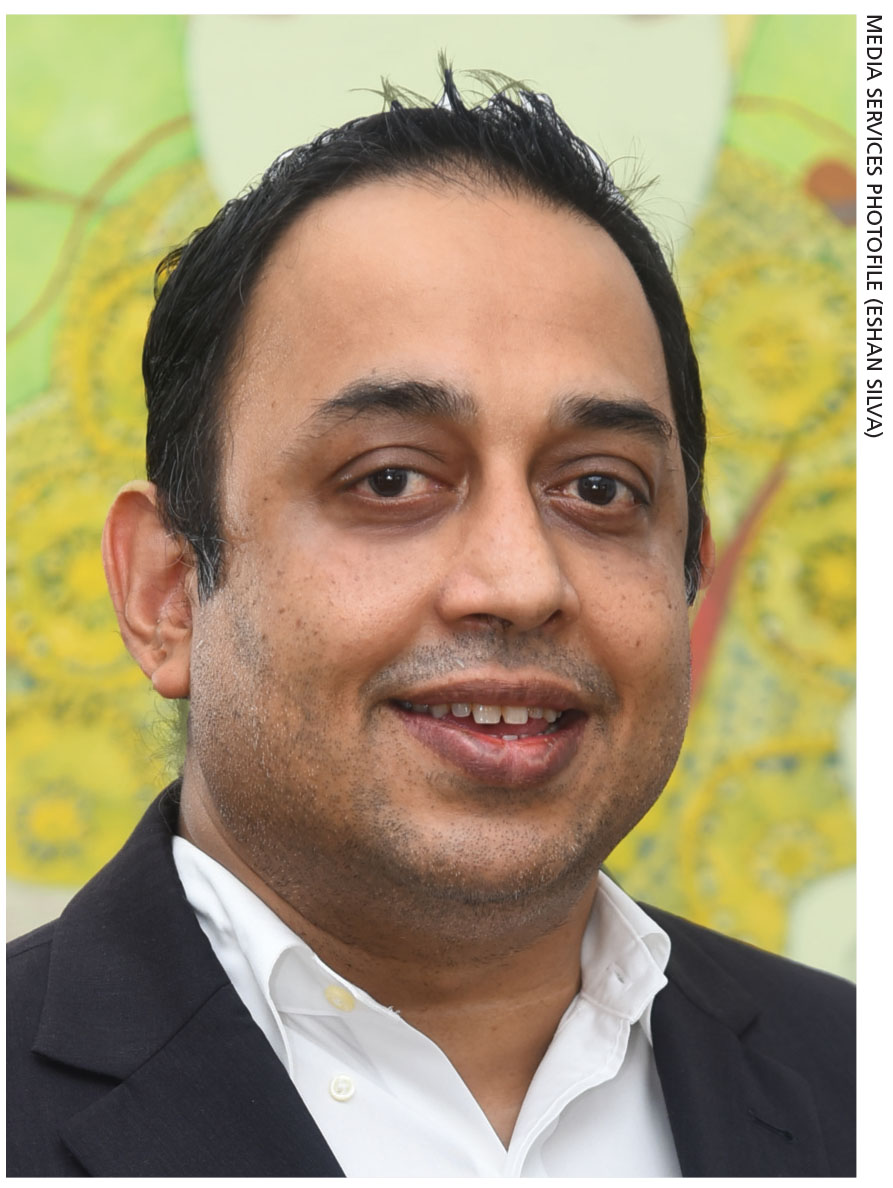IT INDUSTRY
Compiled by Dona Senara
THE WORST MAY BE PAST US
Prashan Nagendra explains how the software sector could hardwire Sri Lanka
Q: Which segments of the IT industry show the most promise, in your opinion?
A: IT services and software product development have always been segments of the information technology industry that have shown solid growth, and provided many opportunities for progress and development.
The software product segment has the most promise as well as the capacity for innovation. Due to the pandemic however, the business process management segment seems to be taking fresh strides and it could be an interesting area to look into.
Q: What are the latest trends and innovations in the IT industry?
A: One of the most notable trends that has emerged over the past several years is cloud computing. Even though this trend is not new as such, it has been steadily developing over the past 10 years or so and shows no sign of slowing down.
AI seems to be even more ubiquitous with natural language processing and machine learning advances. In addition to all these, there’s blockchain, VR, quantum computing and the growth of IoT – all of which demonstrate some of the latest trends in the IT industry.
On the blockchain front, there’s a feeling that cryptocurrency projects have enormous growth potential as the usage of this decentralised digital currency is growing faster than even the internet in its early growth trajectory.
The internet grew at 60 percent year on year in its early stages of development while cryptocurrency is accelerating at 130 percent on a corresponding basis.
Q: What is your outlook for the IT industry over the next year or so – especially in the context of the nation’s ongoing economic crisis?
A: The worst is over in all likelihood, and the information technology industry has managed to weather the storm and remain somewhat unscathed. There’s optimism with regard to the future, even though certain ripple effects may be felt and have to be endured in the long term.
We feel that once the IMF agreement is finalised, there will be more stability in the country and our overseas clients will regain confidence in Sri Lanka. Even during the worst of times, most of our clients were concerned; but they continued to remain with us due to the resilience and adaptability displayed by Sri Lanka’s IT industry workforce.
Q: Could you outline the most pressing challenges the industry is facing in the midst of the prevailing economic scenario?
A: There aren’t enough software engineering resources to fulfil demand; and due to the unstable economy on top of this lacuna, many highly skilled people have been lost to migration opportunities.
We have been extra vigilant in terms of ensuring that our employees are content to reduce staff turnover.
Another pressing issue has been the limited supply of fuel, which has also resulted in frequent power cuts. We have managed this by relying on generators and other backup power solutions on the premises – but this can be a matter of concern to foreign clients.
Nevertheless, we have managed to provide continuous services to all our clients during even the worst of the power outages.
The sociopolitical instability that we’ve experienced in recent months has made many of our international clients very nervous. They have had frequent conversations with our teams to determine the ground realities that prevailed at the time.
Q: In your view, what are among the initiatives needed to overcome these challenges – and has there been any progress made so far?
A: With regard to insufficient resources, there needs to be a long-term strategy to produce candidates of international standard. Critical thinking and communication skills are major criteria that come into play when hiring people for these job opportunities. Soft skills such as adaptability, active listening and concise communication need to be ingrained in our youth while at school – and sharpened at university level.
While the technical skills of our IT graduates are very good, they need to be prepared for the needs of the industry in other areas – such as communication and following processes – at university level.
Q: And last but not least, what’s your assessment of the performance of software development segments in recent months – and what does the future hold?
A: Even through the recent turmoil on the sociopolitical front, the software services sector remained resilient and has survived. Although the road ahead is long, we feel that the worst is over and businesses in Sri Lanka have taken adequate measures to weather the storm.
We’re confident that the IT industry will soon begin to thrive again. Our resources are world-class; and on numerous occasions, clients who have teams here and in neighbouring Asian countries always end up expanding in Sri Lanka.
They feel Sri Lankan talent is far more engaging than the corresponding attributes of our Asian counterparts, and that the industry here provides better solutions. And most importantly, our staff turnover is much lower than in other Asian countries.
We genuinely believe that if Sri Lanka can mitigate the talent shortage, the IT industry in general and software sector in particular will be able to reach new heights.
The interviewee is the Chief Executive Officer of EFutures.




